Early-stage researchers
Early stage researchers
Martina de Eccher
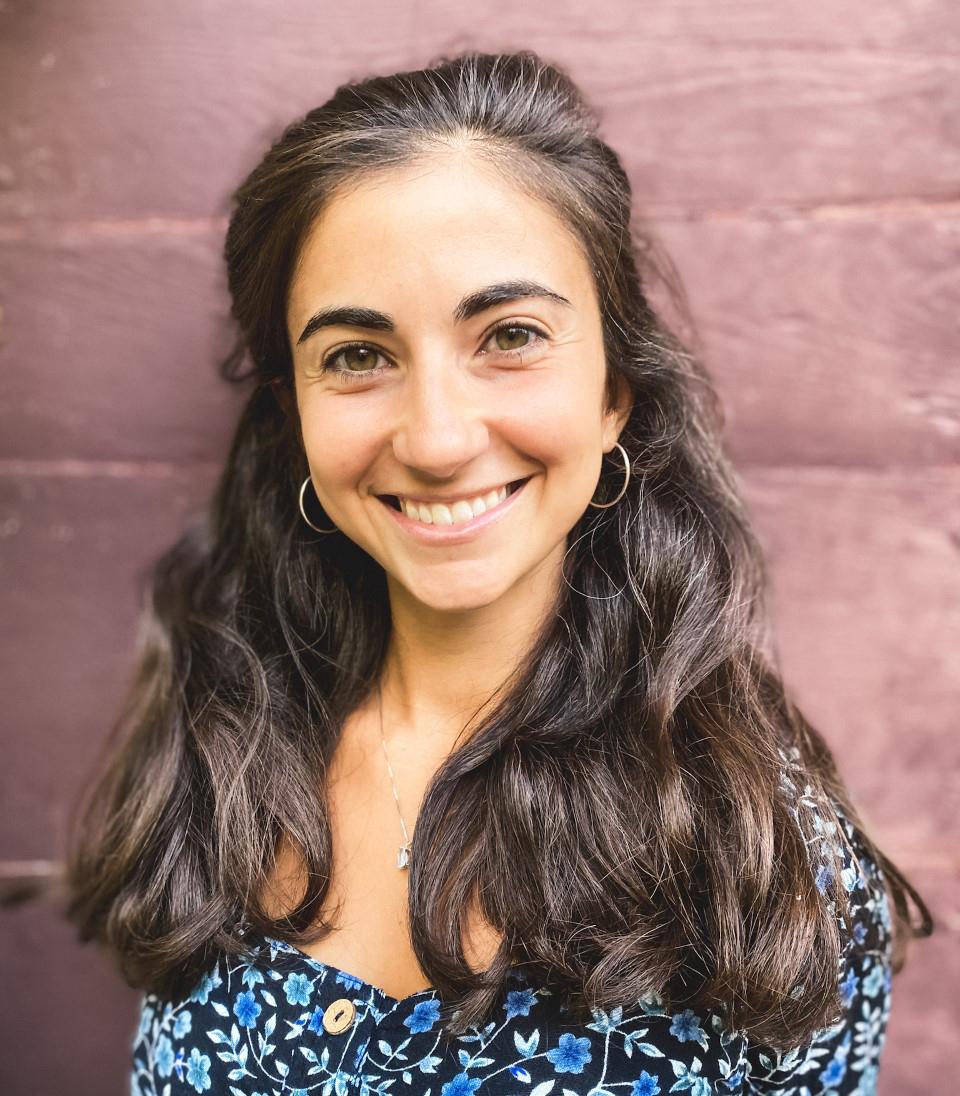 I completed my bachelor’s degree in Developmental and Educational Psychological Science and my master’s degree in Developmental Clinical Psychology at the University of Padua, Italy. After my studies, I completed a one-year internship at the Wiener Kinderstudien Lab of the University of Vienna. There, I was involved in various research projects and I was trained in different methods to investigate early socio-cognitive development.
I completed my bachelor’s degree in Developmental and Educational Psychological Science and my master’s degree in Developmental Clinical Psychology at the University of Padua, Italy. After my studies, I completed a one-year internship at the Wiener Kinderstudien Lab of the University of Vienna. There, I was involved in various research projects and I was trained in different methods to investigate early socio-cognitive development.
Currently, I am a PhD student at the Psychology of Language Department at Georg-August-Universität in Göttingen, Germany. My project focuses on how pre-schoolers learn words from digital input. Specifically, I am investigating how young children actively select information during word learning in a digital environment, and how digital feedback can help them correct their mistakes during word learning.
Luca Raggioli
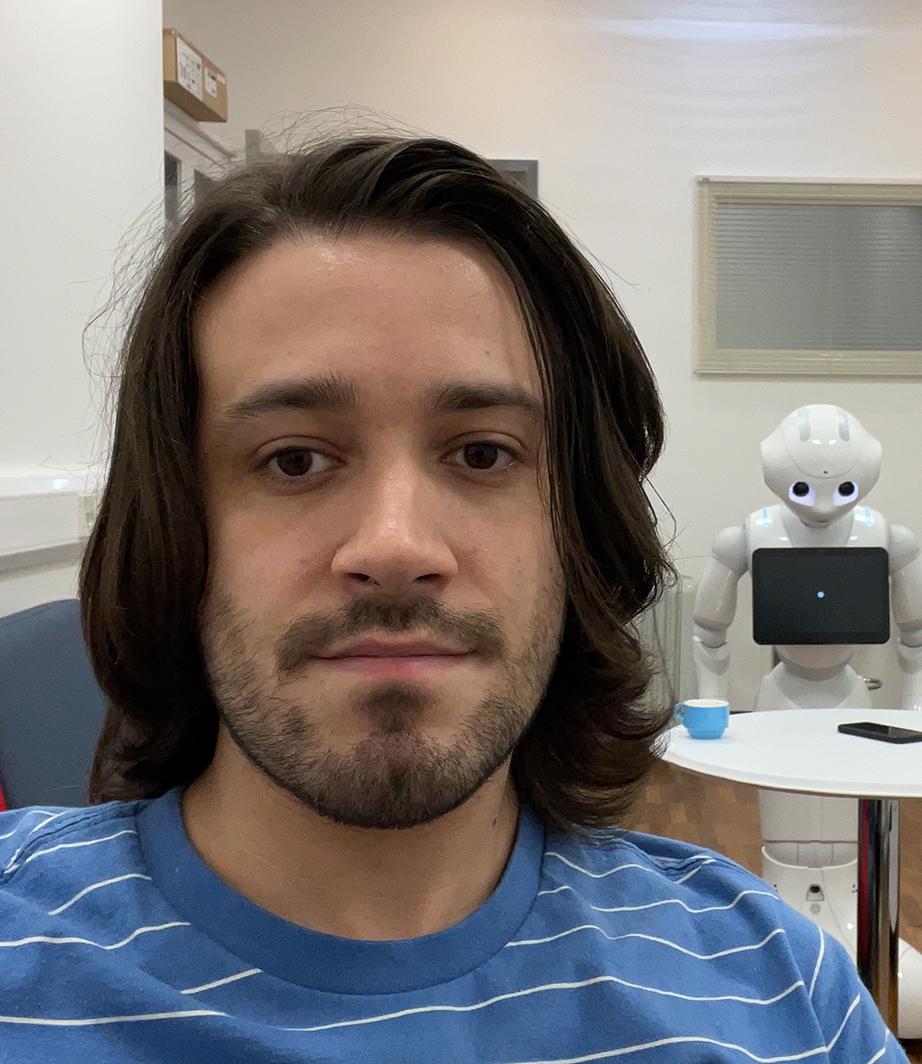 Luca got his B.Sc and M.Sc. degrees in Computer Science at the University of Naples Federico II. Here he worked as a Research Fellow at the PRISCA Laboratory, focusing on Socially Assistive Robots approaches for elderly affected with Alzheimer, and on AI systems aimed at supporting rehabilitation sessions for children with motor impairments. His main research areas included Reinforcement Learning and Recurrent Neural Networks for robotic applications, HRI and HCI, activity recognition, emotion and disengagement detection.
Luca got his B.Sc and M.Sc. degrees in Computer Science at the University of Naples Federico II. Here he worked as a Research Fellow at the PRISCA Laboratory, focusing on Socially Assistive Robots approaches for elderly affected with Alzheimer, and on AI systems aimed at supporting rehabilitation sessions for children with motor impairments. His main research areas included Reinforcement Learning and Recurrent Neural Networks for robotic applications, HRI and HCI, activity recognition, emotion and disengagement detection.
Currently, he's a PhD student at the University of Manchester (UK), where his project's primary focus is to study the impact of Social Robots on early language development in preschool children, both from a computational and theoretical perspective with the use of cognitive architectures, and from an experimental point of view, with in person Child-Robot Interactions sessions. During his PhD he will be involved in integrated projects with other ESRs focussing educational app development and on gender and population-level variables in language learning when using digital tools.
Fatih Sivridag
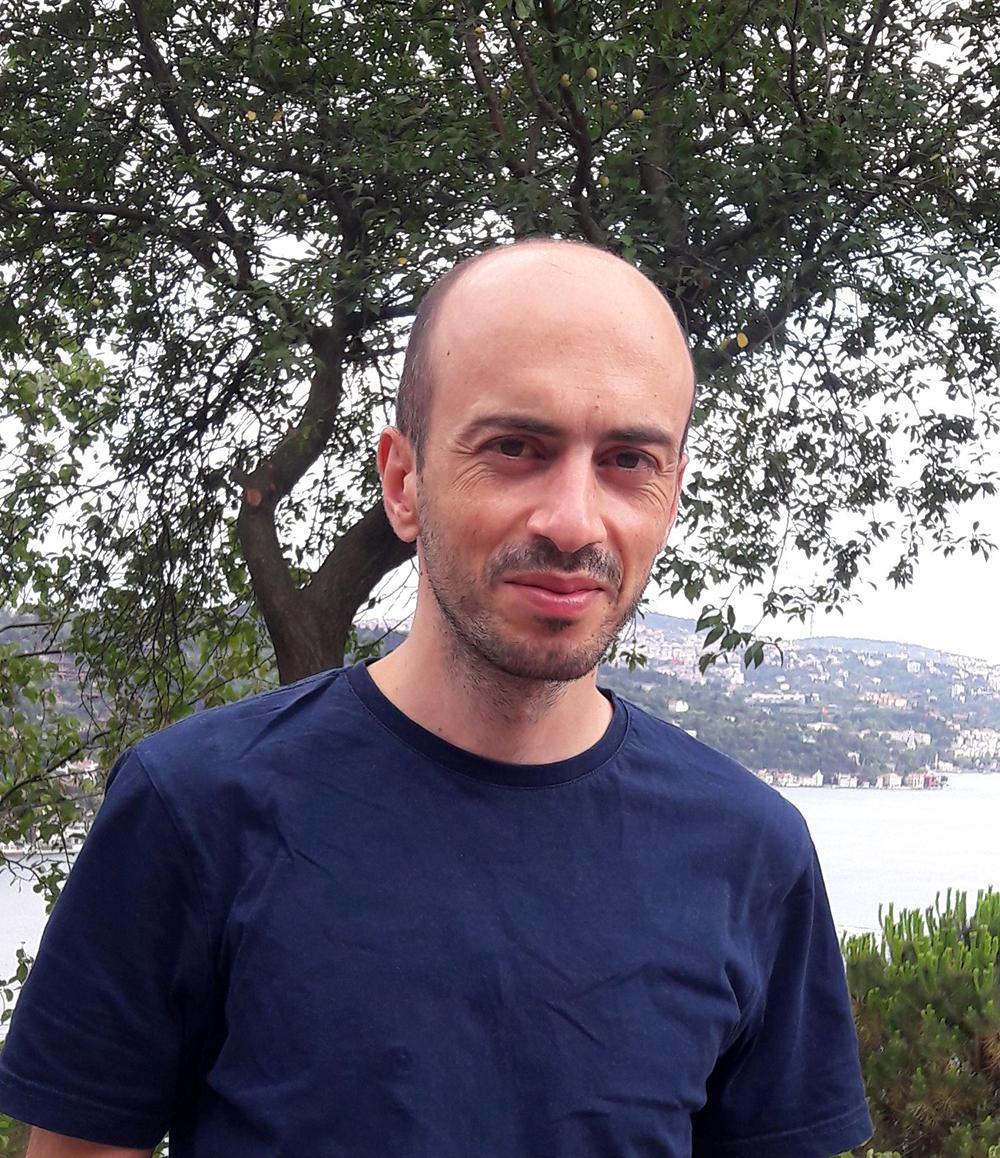 I completed my BA in Foreign Language Education at Bogazici University in 2012 and received an MA in Cognitive Science from the same university in 2019. For my master's thesis I investigated the role of working memory and proficiency in L2 reading. I also worked as a language teacher at various primary and secondary level schools in Istanbul between 2012 and 2020 and had a chance to observe different aspects of L2 learning closely.
I completed my BA in Foreign Language Education at Bogazici University in 2012 and received an MA in Cognitive Science from the same university in 2019. For my master's thesis I investigated the role of working memory and proficiency in L2 reading. I also worked as a language teacher at various primary and secondary level schools in Istanbul between 2012 and 2020 and had a chance to observe different aspects of L2 learning closely.
My project within e-ladda involves the investigation of L2 learning through digital technologies. Specifically, I am working on the differences in dialogue between face-to-face and video chat interactions and whether children can learn words in their L2 efficiently through video communication.
I am also taking part in Integrated Projects two and three, in which we are collaborating within the network to develop a language learning app based on the needs of community and communicating the findings of the research in the area to the general public, respectively.
Aisha Futura Tüchler
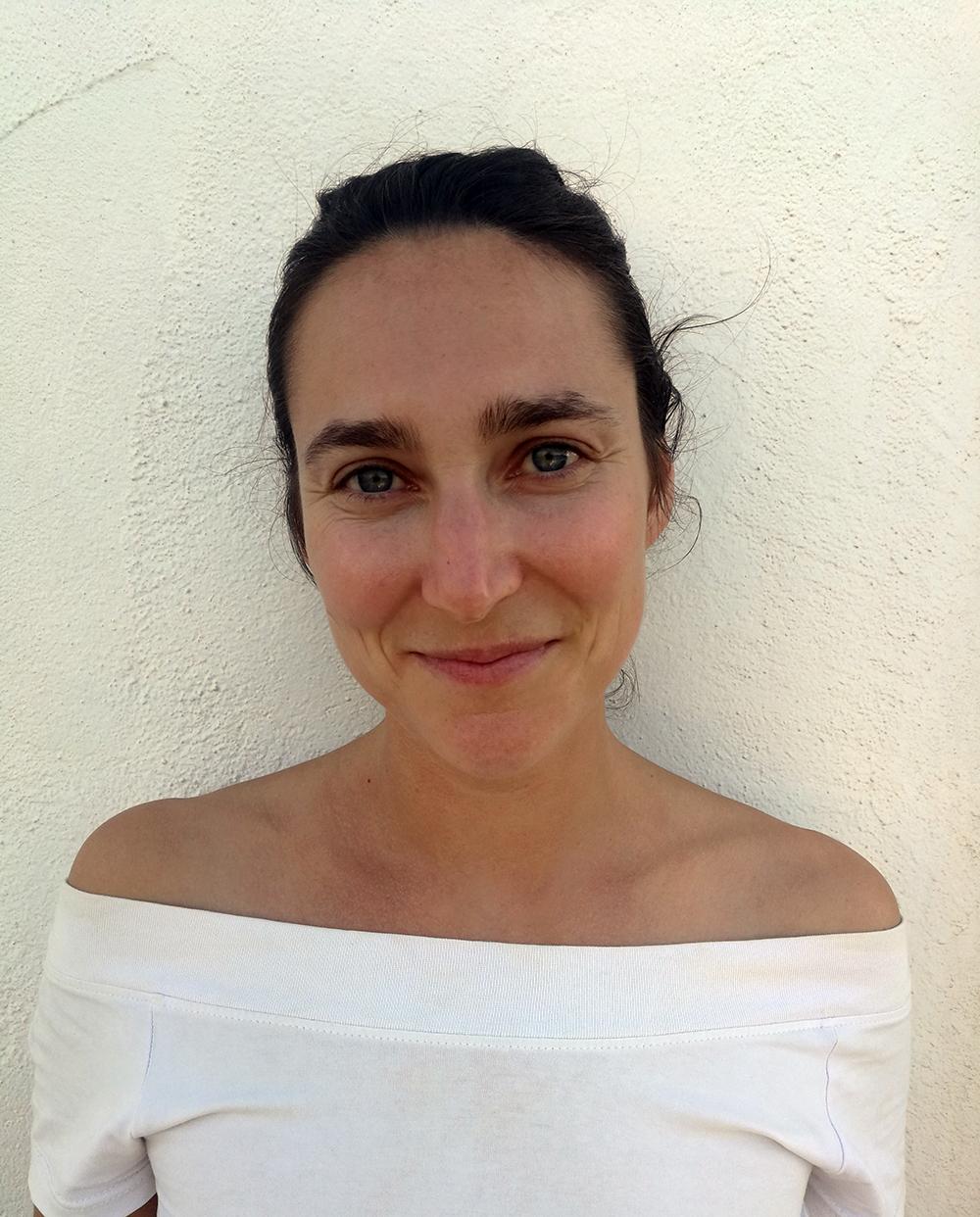 Aisha is a philologist and cognitive scientist. During her degree in Cognitive Science she got acquainted with scientific literature and methods of the disciplines Psychology, Neuroscience, and Computer Science, as well as Philosophy of Mind. After gaining inside and outside of academia, she is just finding her way “back to the roots” and is looking forward to expanding her skills and knowledge concerning methods in linguistics and beyond.
Aisha is a philologist and cognitive scientist. During her degree in Cognitive Science she got acquainted with scientific literature and methods of the disciplines Psychology, Neuroscience, and Computer Science, as well as Philosophy of Mind. After gaining inside and outside of academia, she is just finding her way “back to the roots” and is looking forward to expanding her skills and knowledge concerning methods in linguistics and beyond.
The abundant discussions with colleagues from various disciplinary backgrounds during her Cognitive Science degree and in her current research project were a very educational and eye-opening experience and she is very much looking forward to discussing and collaborating with the other ESRs within the e-LADDA network.
Laura Diprossimo
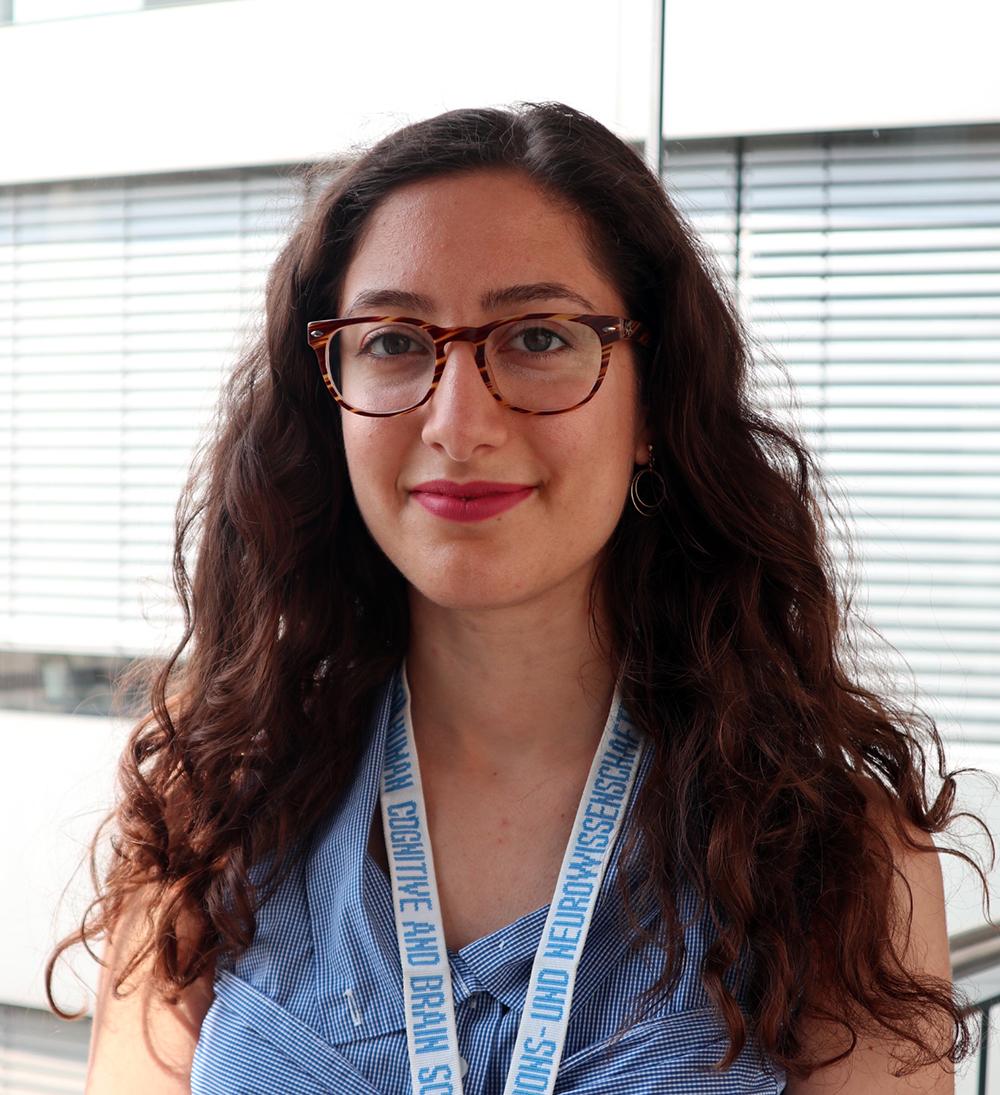 Laura holds a B.Sc. in Speech and Language Pathology from the University of Milan and a M.Sc. in Cognitive Neuroscience from the Center for Mind/Brain Sciences, University of Trento, Italy.
Laura holds a B.Sc. in Speech and Language Pathology from the University of Milan and a M.Sc. in Cognitive Neuroscience from the Center for Mind/Brain Sciences, University of Trento, Italy.
As a predoctoral researcher at the Max Planck Institute for Human Cognitive and Brain Sciences, Germany, she investigated basic cognitive mechanisms underlying early language acquisition, by employing non-invasive optical brain imaging in human infants. For her work, she received the Best Poster Audience Award from the 7th Summer Neurolinguistic School, Center for Language and Brain, HSE, Moscow.
As a Marie Skłodowska-Curie fellow and Ph.D. candidate at Lancaster University, she is currently investigating which aspects of shared reading, via traditional and digital story books, facilitate word learning in children with neurodevelopmental disorders. Ultimately, Laura’s research aims to promote language development across neural diversity, in young and vulnerable populations.
Alireza M. Kamelabad
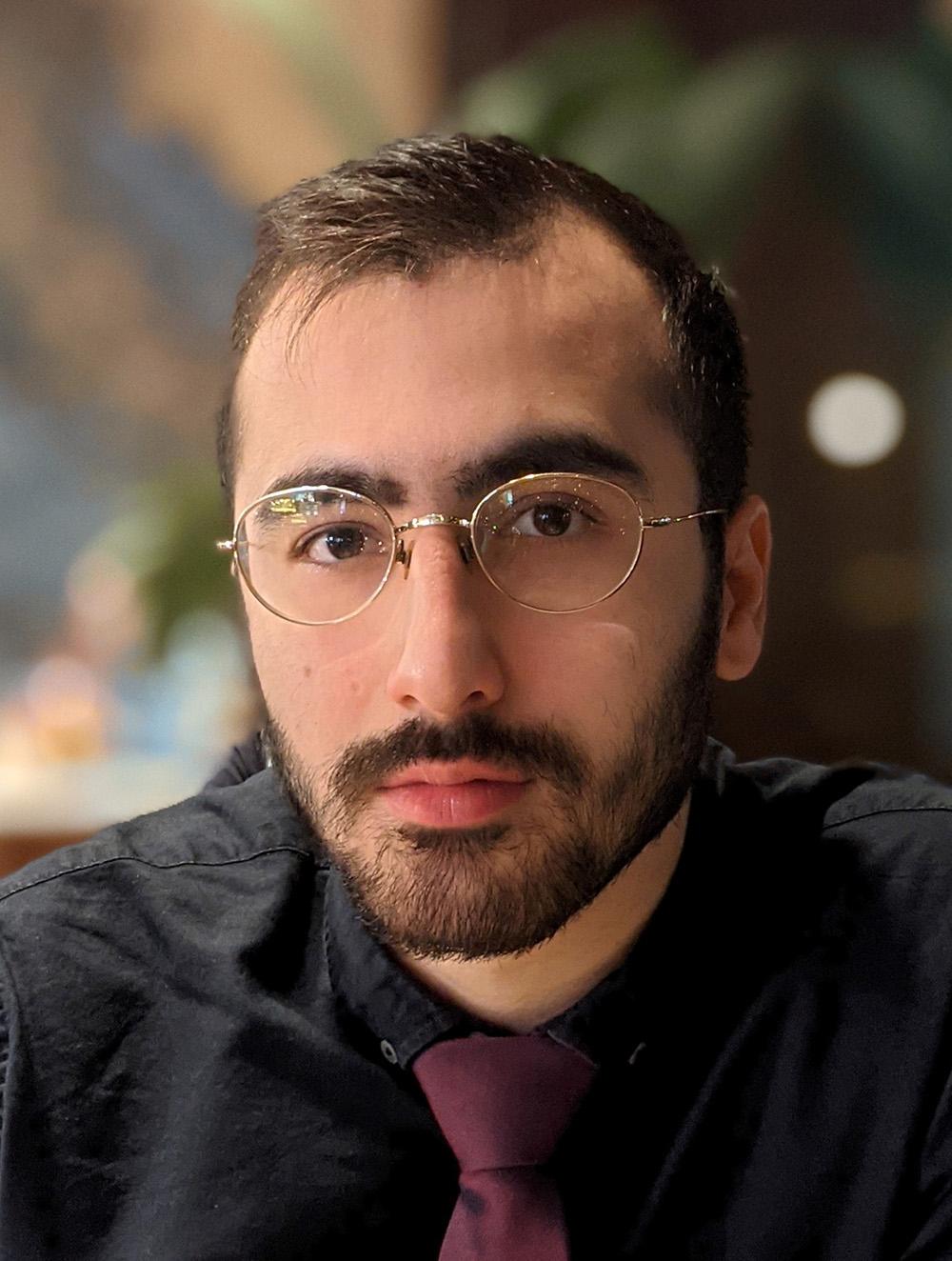 Social Robots are one of the cutting edge and newest end user technologies in the world. In my e-LADDA subproject I investigates the potential roles and effects that Social Robots could have on human early language development. This is mainly within a field called Robot Assisted Language Learning (RALL). I try to approach this field from different angles: Cognitive Science, Linguistics, and Human-Robot Interaction. It is important to understand the affective features of the interaction between humans and robots, in order to spot their role on language acquisition.
Social Robots are one of the cutting edge and newest end user technologies in the world. In my e-LADDA subproject I investigates the potential roles and effects that Social Robots could have on human early language development. This is mainly within a field called Robot Assisted Language Learning (RALL). I try to approach this field from different angles: Cognitive Science, Linguistics, and Human-Robot Interaction. It is important to understand the affective features of the interaction between humans and robots, in order to spot their role on language acquisition.
Currently, I am conducting a word learning experiment with the social robot Furhat, with Swedish 12~13 years old middle school children as L2 learners of English. The results of a similar pilot study during this summer, showed promise in the effectiveness of using social robot in such task, compared to a situation of doing the same task but this time only with a voice assistant of the robot without its body. The voice was functioning exactly as the robot was and was able to answer and discuss the exact same things. In the upcoming experiment, I will explore the effects of collaborative learning having two children present in such word learning task. (For more information please check my project's website.
Eventually, I would target atypical learners (ASD, ADHD, ...) and try to employ the assistive power of digital technologies, to empower the ones in need. I am fascinated by human's brain and cognition and on top of all our distinctive skill: Language. Also I am amazed by the power of computers in our era and I see an immense influence of Digitalizations and Robotics in many aspects of human's current and near future life. Meanwhile, I would like to use my skills, knowledge and passion to have a track on this path and impact its development.
I studied bachelor’s of Computer Science at Shahid Beheshti University in Tehran. Then in 2017 I started a year of the M.A. in Human-Computer Interaction in the University of Trento In Italy. In 2018 I moved to M.Sc. in Cognitive Science –Language and Multimodal Interaction– at the same university in the Center for Mind/Brain Sciences (CIMeC). Then in 2019 I moved to the Netherlands where I was a guest research intern at Tilburg University in the Cognitive Science and Artificial Intelligence group working on Computational Modeling of Language Acquisition and continued working on my master thesis in the same group.
Paula Janjić
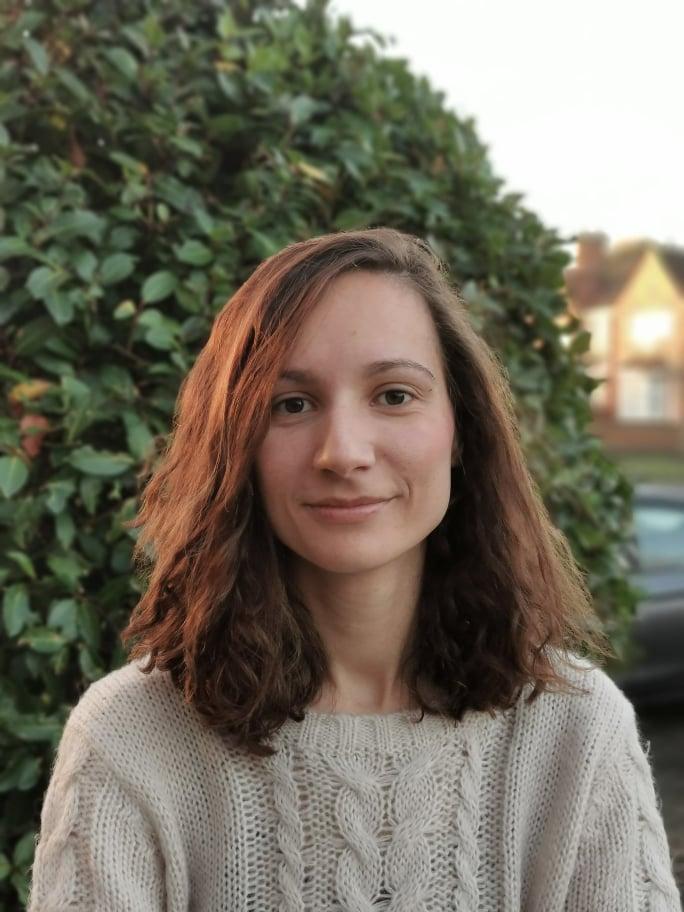 Paula holds bachelor's and master's degrees in Speech and Language Pathology from the University of Zagreb. Before graduating, she did a placement programe at the Trinity College Dublin's Institute for Neuroscience where she studied changes in language associated with primary progressive aphasia using brain imaging methods. She graduated with a master's thesis looking at the relationship between executive functions and language in adult age. After graduating, she worked as a speech and language pathologist with various populations and different age groups. She also collaborated on the development of the software solution that would serve as an aid in speech and language therapy.
Paula holds bachelor's and master's degrees in Speech and Language Pathology from the University of Zagreb. Before graduating, she did a placement programe at the Trinity College Dublin's Institute for Neuroscience where she studied changes in language associated with primary progressive aphasia using brain imaging methods. She graduated with a master's thesis looking at the relationship between executive functions and language in adult age. After graduating, she worked as a speech and language pathologist with various populations and different age groups. She also collaborated on the development of the software solution that would serve as an aid in speech and language therapy.
She was always particularly interested in psycholinguistics and neuroscience of language, which is why she is excited to join this project to explore how mobile phone technology can assist second language learning and to look at the neural correlates behind this process.
Ibrahim El Shemy
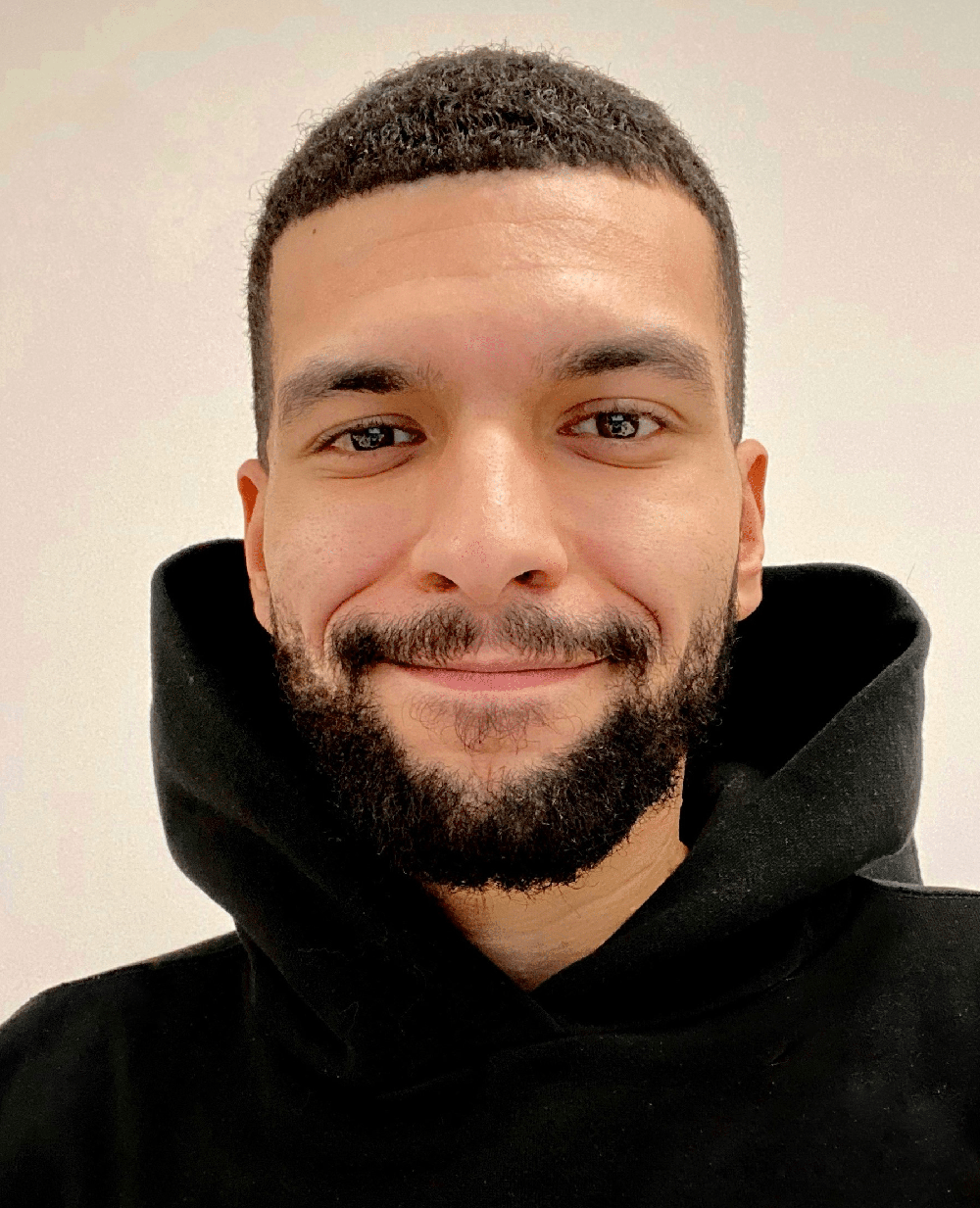 Ibrahim is a computer scientist, and his research is oriented towards Human/Child Computer Interaction. He got both his BSc and MSc degrees in Computer Science and Engineering at Politecnico di Milano University, focusing on immersive technologies targeting children and young adolescent with language impairments and intellectual disabilities. His main research areas include Mixed Reality, Virtual Reality and Augmented Reality, Gamification, Conversational Agents, Interaction Design for web and mobile applications, AI and speech recognition, and Language Development.
Ibrahim is a computer scientist, and his research is oriented towards Human/Child Computer Interaction. He got both his BSc and MSc degrees in Computer Science and Engineering at Politecnico di Milano University, focusing on immersive technologies targeting children and young adolescent with language impairments and intellectual disabilities. His main research areas include Mixed Reality, Virtual Reality and Augmented Reality, Gamification, Conversational Agents, Interaction Design for web and mobile applications, AI and speech recognition, and Language Development.
Currently he is enrolled in a PhD programme at NTNU, and is employed by SpongeUK. In his e-LADDA project his research is focused on investigating how Augmented Reality (AR) based mobile interventions can facilitate the learning of some linguistic concepts for children affected by autism spectrum disorder and what are the Artificial Intelligence capabilities that can bring value to a semi-immersive learning experience. A central goal of his research project will be the design and development of a novel mobile AR application to support and accomplish his research purposes. During his PhD he will also conduct research for SpongeUK, which is an established company in the field of Digital Learning solutions for companies. He is also involved in the Integrated Project 2 with other ESRs, focusing on educational mobile application development for language learning.
University Profile: Ibrahim El Shemy - NTNU
Zijian Fan
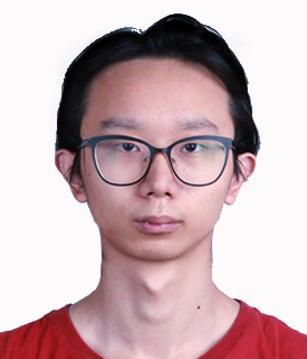 Zijian received Bachelor’s degree in Electrical Engineering from Dalian University and Technology, and Master’s degree in Information and Network Engineering from Royal Institute of Technology.
Zijian received Bachelor’s degree in Electrical Engineering from Dalian University and Technology, and Master’s degree in Information and Network Engineering from Royal Institute of Technology.
His research interests include deep learning in the field of speech recognition and natural language process. As a man of science, he want to figure out the effects of digital devices that happen to children.
Karla Zavala Barreda
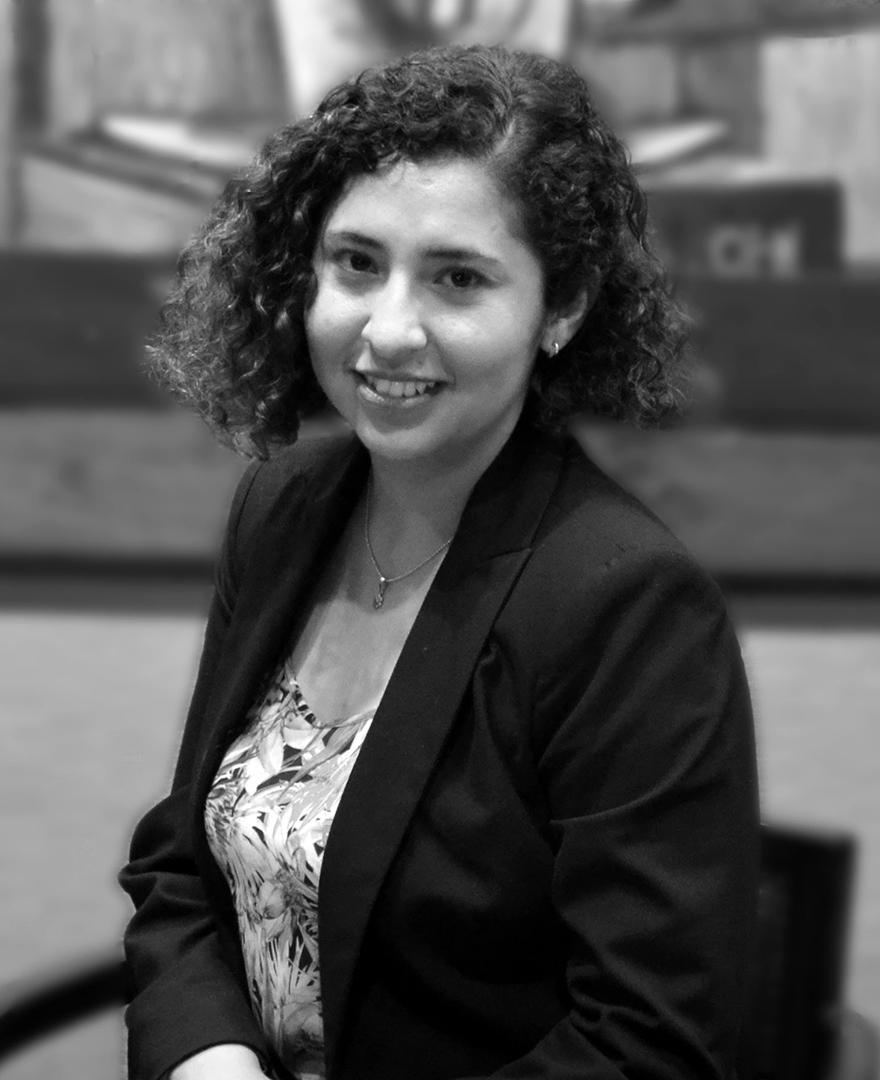 Karla holds an Erasmus Mundus MA in Media Arts Cultures from Aalborg University (DK) and a BA in Communication for Social Development from the University of Lima (PE). She has presented research papers on the topics of Post-digital aesthetics, Game Studies, and Creative Industries in Europe and Latin America, as well as a speculative-design project at Ars Electronica (AT). During her master thesis, through a practice-led research method, she co-designed a critical board game that consisted of codifying insights and theories from Software Studies into game elements and mechanics to respond to recent calls for algorithmic literacy initiatives.
Karla holds an Erasmus Mundus MA in Media Arts Cultures from Aalborg University (DK) and a BA in Communication for Social Development from the University of Lima (PE). She has presented research papers on the topics of Post-digital aesthetics, Game Studies, and Creative Industries in Europe and Latin America, as well as a speculative-design project at Ars Electronica (AT). During her master thesis, through a practice-led research method, she co-designed a critical board game that consisted of codifying insights and theories from Software Studies into game elements and mechanics to respond to recent calls for algorithmic literacy initiatives.
Her professional experience spans from communications, software project management, to app UI/UX design. She is very interested (and invested) in the intersection between software, design, and education. As part e-LADDA at UvA she aims to deepen her understanding of digital media and apps ecosystems, and broaden her knowledge in app development in educational media contexts, evaluation for accessibility, language learning, and literacy in young children.
Ana Lucia Urrea
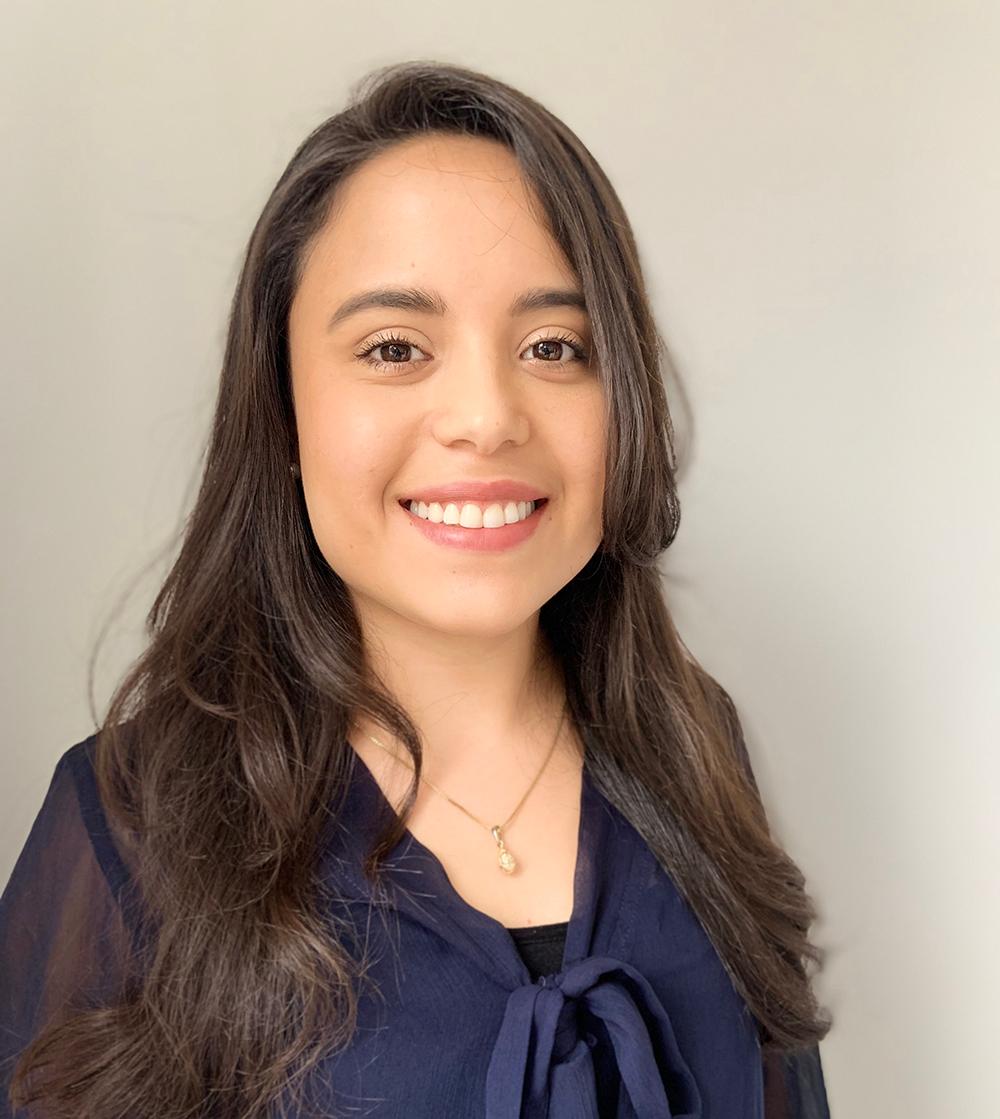 Ana Lucia has a MSc in Early Childhood Research from Universität Leipzig in Germany and a BA in Psychology from Universidad Del Valle de Guatemala. In addition to her academic background she has worked as a psychologist with special or atypical population such as Autism, Down syndrome and Learning disorders.
Ana Lucia has a MSc in Early Childhood Research from Universität Leipzig in Germany and a BA in Psychology from Universidad Del Valle de Guatemala. In addition to her academic background she has worked as a psychologist with special or atypical population such as Autism, Down syndrome and Learning disorders.
Her research interests include language development, language acquisition and research with special or atypical populations.Currently, she is a PhD student at the University of Seville, where her project´s primary focus is to study language acquisition in a robot-assisted intervention with children with Autism Spectrum Disorder ASD. During her PhD she will be involved in integrated projects with other ESRs.
Hülya Aldemir
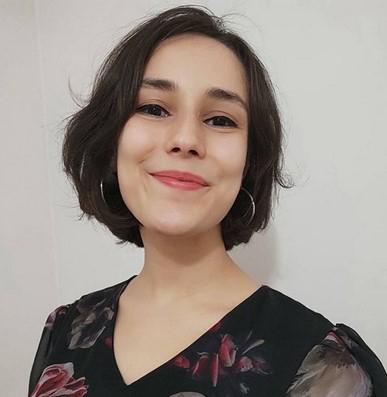 Hülya has pursued her Bachelor’s degree in Psychology in Ege University and her MSc. degree in Cognitive Neuroscience from Center for Mind/Brain Sciences, University of Trento. During her degree, she learnt using electrophysiological techniques such as EEG, and pursued psycholinguistics research during her internship in Basque Center on Cognition, Brain and Language (BCBL). She completed her master’s thesis research on code-switching in Basque - Spanish bilingualism with Speech & Bilingualism group in BCBL.
Hülya has pursued her Bachelor’s degree in Psychology in Ege University and her MSc. degree in Cognitive Neuroscience from Center for Mind/Brain Sciences, University of Trento. During her degree, she learnt using electrophysiological techniques such as EEG, and pursued psycholinguistics research during her internship in Basque Center on Cognition, Brain and Language (BCBL). She completed her master’s thesis research on code-switching in Basque - Spanish bilingualism with Speech & Bilingualism group in BCBL.
She is now the ESR10 in the e-LADDA Network, working on vocabulary interventions in the early ages of deaf/hard of hearing individuals under supervision of Prof Rodríguez-Ortiz and Prof Saldaña as a member of Laboratory of Diversity, Cognition and Language, Faculty of Psychology, University of Seville.
Theresa Kalchhauser
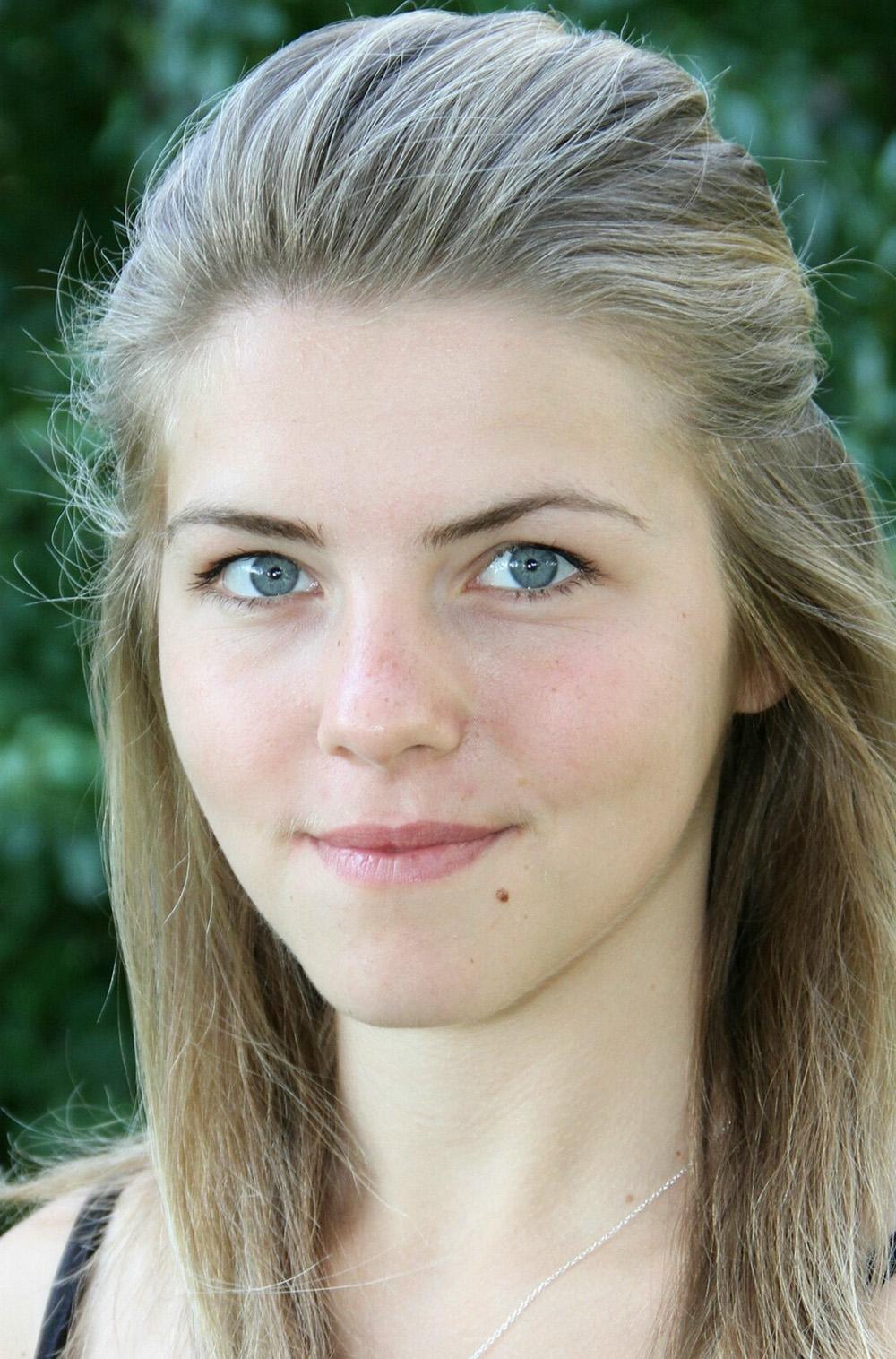 Theresa Kalchhauser is a linguist with a focus on Slavic languages from University of Vienna. In addition to the Master’s degree she holds Bachelor degrees in both the Czech and Slovak language. After having gained experience inside and outside academia she joined the e-LADDA team and is delighted to contribute to the project.
Theresa Kalchhauser is a linguist with a focus on Slavic languages from University of Vienna. In addition to the Master’s degree she holds Bachelor degrees in both the Czech and Slovak language. After having gained experience inside and outside academia she joined the e-LADDA team and is delighted to contribute to the project.
Theresa is particularly interested in the literacy process and children's bilingual language acquisition. In addition, she is also very interested in interdisciplinary research in these areas, such as music-related intersections.
As a Marie Skłodowska-Curie fellow and Ph.D. candidate at the University of Porto she focuses under the supervision of Professor Rui A. Alves on the influence of digital technologies in literacy development of pre-school children. She is eager to find out the dynamic links between gestures, language and literacy in order to estimate the best technologies and gesture modalities to foster literacy skills in children.
Giulia Zantonello

As a research intern at the CIMeC Brain and Language Group (BLG), she was involved in a study on developmental dyslexia in adulthood stages, combining neuroimaging (sMRI and fMRI), behavioral and machine learning techniques.
She is currently working on the e-LADDA ESR2 project at the Language Acquisition and Language Processing Lab (LALP) at NTNU, investigating sensory predictors of first language acquisition and development in children in an eye-tracking and EEG/ERPs experimental paradigm.
